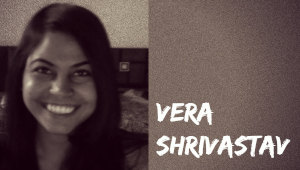What is the #Sabarimala temple entry controversy all about? What are the legal and constitutional complications? Which fundamental rights are in conflict here? And how do we decide whose rights should prevail? We explored all these questions to give you a clearer picture. Watch below and don’t forget to let us know what you think.
Tag: freedom of religion
Many incidents of mass conversion have taken place in India since Independence. Half a million Dalits, under the leadership of Dr. B.R. Ambedkar, embraced Buddhism in Nagpur in 1956. In 1981 in Kanyakumari, hundreds of families turned to Islam citing social reasons and in Delhi in 2002, thousands of Dalits, overcoming several political obstacles, converted to Buddhism. Last year in Agra, 57 Muslim families were converted to Hinduism, allegedly coerced by political factions.
Freedom to ‘propagate’ religion
The contemporary debate about the introduction of a national anti-conversion law begs us to re-examine Article 25 of the Constitution, the bedrock of the freedom of religion in India. Article 25 states that every person has the fundamental right to freedom of conscience and the right to freely profess, practice, and propagate any religion of his choice. This right applies equally to all religions and the only restrictions placed on it are the restrictions of public order, health and morality, and that it must not violate other fundamental rights.
The issue of whether the controversial ‘right to convert’ falls within or outside the ambit of the expression “propagate” is a question of fundamental importance to determine the constitutionality of any anti-conversion law. A few revered members of the Constituent Assembly were of the view that “Propagation does not necessarily mean seeking converts by force of arms, by the sword, or by coercion. But why should obstacles stand in the way if by exposition, illustration and persuasion you could convey your own religious faith to others?” This would constitute the very essence of our fundamental right to freedom of religion. Another member was of the view that even if the word “propagate” were absent from the Article, it would be open to any religious community to persuade others to join their faith using their fundamental right to freedom of speech. It is only when conversion is tainted with undue influence such as money or pressure by other means, should the state step in to regulate such activities. It is abundantly clear that the intent of the drafters of our Constitution was to recognise conversion by the free exercise of the conscience.
State anti-conversion legislation
Five states – Madhya Pradesh, Orissa, Gujarat, Chattisgarh, and Himachal Pradesh – already have anti-conversion laws in force. Enacted with the objective of preserving freedom of religion, these laws do little to curtail forced conversions and are in fact an impediment on the freedom of choice and conscience of individuals wishing to convert freely.
A 19th century lithograph depicting the conversion of the Paravas, a fisherfolk caste from southern India, to Christianity by St. Francis Xavier.
These state laws attempt to ban conversions that occur by force, fraud, allurement, and inducement. With these terms defined vaguely or not at all, they leave much scope for abuse. For instance, under the Orissa Freedom of Religion Act, 1967, the grant of any benefit, either pecuniary or otherwise, is considered as allurement and the charitable work done by religious organisations could easily fall under the definition of “allurement”. Other laws, such as those in Gujarat and Madhya Pradesh, require consent from a magistrate before a conversion. Such provisions give too much power to state authorities and curtail the individual’s fundamental right to freedom of religion.
Rev. Stanislaus v. State of Madhya Pradesh and Kokkinakis v. Greece
Provisions of the Indian Penal Code, such as those dealing with criminal intimidation (Chapter XXII) and forcible attempts in the name of religion (Section 153), already provide adequate remedies to curb forcible conversions. In light of the available remedies, the landmark ruling of the Supreme Court in the case of Rev. Stanislaus v. State of Madhya Pradesh (1997), where the Court considered the constitutionality of the Orissa Freedom of Religion Act, 1967 and the Madhya Pradesh Dharma Swatantraya Adhiniyam, 1968 is a disappointing one. The two acts prohibit forceful conversion and make it a punishable offence. Even though the Orissa High Court ruled that the expression ‘propagate’ includes the right to convert, making it a fundamental right, the Supreme Court overruled that decision and upheld the constitutionality of both the acts presumably with the bona fide intention to curtail forceful conversions. The Supreme Court held that the Article does not grant the right to convert another person to one’s own religion but only to transmit or spread one’s religion by an exposition of its tenets. What is freedom for one is freedom for the other in equal measure and there can, therefore, be no such thing as a fundamental right to convert any person to one’s own religion”.
Perhaps the introduction of a national anti-conversion law will give the apex court the chance to revisit and overrule its past decision and uphold the tenets of secularism, religious liberty, and the freedom of conscience in India. While doing so, the law makers of this country and the judiciary will be well advised to refer to India’s international obligations under the Universal Declaration of Human Rights, the International Covenant on Economic, Social and Cultural Rights, and the International Covenant on Civil and Political Rights, all of which recognise the freedom of religion and freedom of conscience as an inalienable right. The decision of the European Court of Human Rights in Kokkinakis v. Greece (1993) is also relevant. In contrast to the Stanislaus Case, the European Court held that the right to try to persuade one’s neighbor in matters of religious belief is included in an individual’s right to freedom of religion under Article 9 of the European Convention.
While it goes without saying that any act of forceful religious conversion must be met with harsh sanctions, we cannot allow any infringements on our fundamental right to freedom of religion and freedom of conscience which will be a likely consequence of the proposed national anti-conversion law.
Vera Shrivastav, an Associate at the Legalogic law firm, is also a researcher and writer and was awarded a Junior Research Fellowship in 2014.

